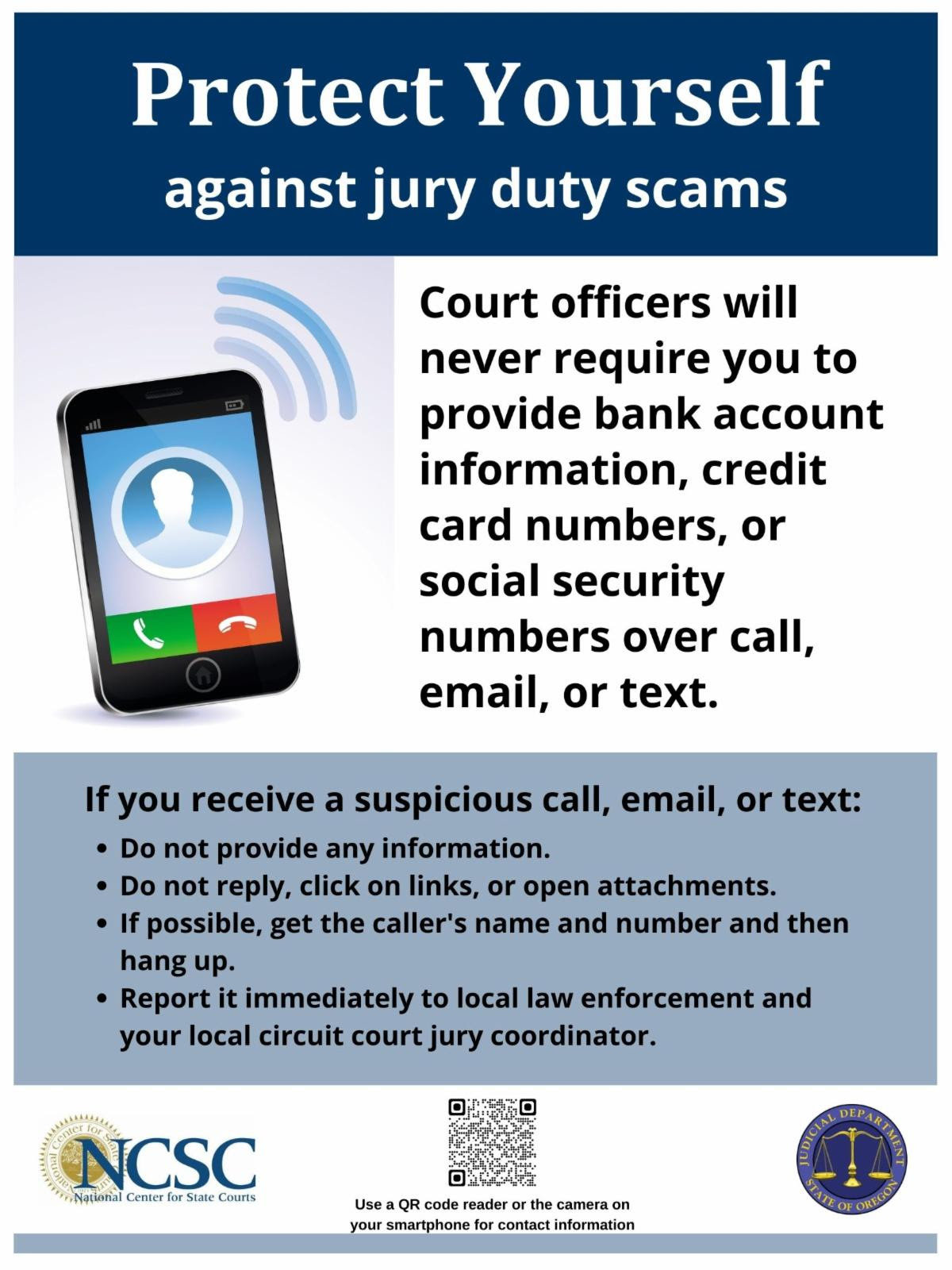Serving on a jury is one of the most important civic duties one can perform. The summons and selection process, however, is often shrouded in mystery because it can be rare to receive a jury summons, and, many times, someone who receives a summons is never selected to serve.
Scammers are taking advantage of this lack of familiarity with the process. In recent weeks, Oregonians have been targeted by fraudulent calls, emails, and texts threatening people with fines, prosecution, or jail time for “failing to comply with jury duty.”
Scammers claiming to be police officers or court officials allege that you owe fines for not responding to a jury summons. They then attempt to pressure you to send a “fine” payment through Zelle or purchase prepaid debit/gift cards and provide these cards or card code numbers to people over the phone or in person. Messages often appear to be coming from a legitimate source when they are not.
In response, the Oregon Judicial Department (OJD) has stated that federal and state courts do not require anyone to provide sensitive information in a call, email, or text. Although Oregon courts may provide jury notices and reminders by text, these will not request personal information, make threats, or demand money.
According to OJD, here is what to do if you receive a jury-related phone call, email or text that demands information or money:
• Provide neither the requested information nor any payment.
• Do not reply directly to the text or email, click on any links, nor open any attachments, even if it appears that the message is coming from the courts or police.
• Reach out directly to your local circuit court jury coordinator to verify or report the communication.
Contact information for Oregon’s state circuit courts are available on their website. Information about jury duty and possible scams can be found on the US District Court website.
If you have received one of these calls, emails, or texts and have given out personal information, monitor your account statements and credit reports carefully. If any unauthorized charges are made, report the theft to local law enforcement and the Federal Trade Commission (FTC) at 877-438-4338 or on its website. Also, contact one of the credit bureaus to request that it place a fraud alert on your credit history.
If you receive a jury summons in the mail, that letter will contain information about responding online, through the court’s phone service, or through the mail with an official response postcard. You may also simply appear at the court on the specified service date.
In addition to this new jury-summons scam, scammers continue to request payment of registration, publication, and renewal fees for corporate, domain name, and intellectual property filings.
These types of scams are difficult to identify because scammers often use names and logos that are similar to official state and federal agencies.
Further, it’s easy for scammers to obtain enough specific information about your company, URL, or intellectual property to appear to be real government offices and registries, since the publicly available filings typically contain the contact information of the owner of the business, URL, or intellectual property, as well as relevant dates.
Be very suspicious of any robocall or unexpected email, text, or letter you receive that asks for money or personal information. Do an online search to see if it’s a scam, and, as always, feel free to contact us for assistance if you still aren’t able to tell if a call, email, text, or snail-mail communication is real or a scam.






